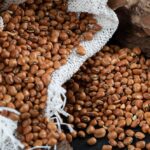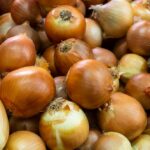Chicory cultivation can indeed offer diversification opportunities in South Africa’s agricultural sector. Chicory (Cichorium intybus) is a versatile crop that has various applications, including as a source of food, medicinal properties, and industrial uses. Here are some key points about chicory cultivation and its potential benefits:
- Crop Characteristics: Chicory is a perennial plant that belongs to the daisy family (Asteraceae). It is primarily grown for its taproot, which can be processed into several valuable products. The plant has a deep root system and can withstand drought conditions, making it suitable for cultivation in certain regions of South Africa.
- Industrial Uses: One of the main uses of chicory is as a coffee substitute or additive. The roasted and ground chicory root can be used as a coffee substitute or blended with coffee to enhance flavor. This presents a unique market opportunity for South Africa, where the demand for coffee substitutes is growing. Additionally, chicory root extract can be used in the food industry as a natural sweetener or dietary fiber.
- Medicinal Properties: Chicory has a long history of traditional medicinal use. The root contains compounds with potential health benefits, such as anti-inflammatory and antioxidant properties. It is also known to support liver health and aid digestion. Extracts from chicory root are used in herbal medicine and dietary supplements.
- Livestock Feed: Chicory leaves and stems can be used as forage for livestock. It is highly palatable and has nutritional qualities that make it suitable for grazing animals such as sheep, cattle, and horses. Adding chicory to pastures can improve animal performance and reduce the risk of diseases associated with internal parasites.
- Soil Health and Crop Rotation: Chicory cultivation can contribute to improving soil health. Its deep root system helps break up compacted soils and improves water infiltration. Chicory is also known for its allelopathic properties, which means it can suppress the growth of certain weeds, reducing the need for herbicides. Including chicory in crop rotations can help manage pests and diseases, enhance soil fertility, and promote sustainable farming practices.
- Economic Opportunities: Chicory cultivation can provide economic benefits to farmers by diversifying their income streams. With the increasing demand for natural and organic products, there is a market potential for chicory-based products both locally and internationally. Furthermore, chicory cultivation can create employment opportunities in processing, value addition, and marketing sectors.
- Environmental Sustainability: Chicory cultivation can contribute to sustainable agriculture practices due to its low input requirements. It requires fewer pesticides and fertilizers compared to some other crops, reducing the environmental impact. The deep root system also helps prevent soil erosion and nutrient leaching.
However, it’s important to note that successful chicory cultivation requires careful consideration of factors such as suitable climate, soil conditions, water availability, and market demand. Conducting a feasibility study, seeking guidance from agricultural experts, and connecting with potential buyers or processors would be crucial steps in exploring the opportunities and challenges of chicory cultivation in South Africa.







